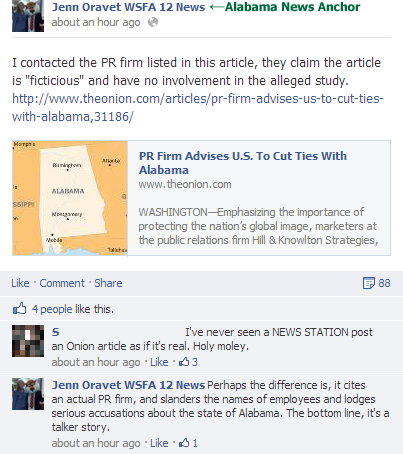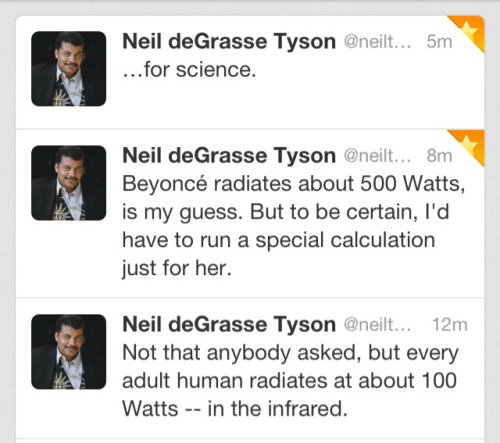

--“As a 12-year-old, should I have lived through this many storms of the century by now?”
--funding a startup with plasma sales? proceed with caution
funding a startup with liquor store robberies? proceed with caution
funding a startup with sex slavery? proceed with caution
It’s ironic that just two weeks ago I signed up with ZombeeWatch.org, intending to set up a light trap and send my results, positive or negative, into the database. I just had a feeling the parasite would be here because we are not that far from California and Oregon, places with known Zombees. Sure enough, an article in today’s Seattle Times reports the first confirmed case of Zombees in Washington, in a town about 55 miles north of where I live.
I first wrote about the parasitic fly, Apocephalus borealis, back in January (A fly in the hive causes bees to flee) but after that I didn’t hear much about them until one of my readers on the east coast wrote last month, asking if there was anything thing else that would cause honey bees to be attracted to light. While looking for an answer, I got interested in the phorid flies again and joined ZombeeWatch.
I have no particular reason to think I have a problem with the flies, but I thought it would be interesting to set up a trap. I don’t normally run exterior lights at night so unless I deliberately set up a light trap, I would probably never notice bees at a light source.
My hunch—at that’s all it is—is that the parasitic flies are widespread and much more common that anyone suspects. Since they are a native species that preys on bumble bees and certain wasps, I suspect they more-or-less follow the distribution of those species. The big unknown is whether the flies have always affected honey bees or if they have recently evolved to parasitize them. And, of course, if it is a recent change, how bad will it get?
The article about the first Washington case can be found here: “State’s first case of ‘zombie bees’ reported in Kent.” You can join ZombeeWatch.org—or just learn more about the so-called scuttle flies—on their website.
If you are unfamiliar with this parasite, the small adult fly lands on the back of a bee and injects its ovipositor into the bee’s abdomen. It lays eggs there which eventually hatch into larvae and feed on the inside of the bee. The bees become increasingly agitated and, at some point, become attracted to light. They fly from the hive at night and hover around a light source until they die. After the bees die, the larvae crawl from the bee’s body and pupate into something the size and shape of a grain of rice. New adult flies emerge from the pupae several weeks later.
Rusty
HoneyBeeSuite
A collection of little utilities I’m building as and when I need them to fix things that are wrong with my Dropbox.
Including bulk_undelete.py, which “will walk the remote Dropbox repository, and download the most recent version of any file that was deleted in the last 5 days into the recovery folder”.
--"Think about that fact for a second- the entirety of what you and I (assuming you and I are in the 35-ish age range) consider to be our pop-culture heritage- G.I. Joe, Transformers, He-Man and all the rest exist PURELY out of the government throwing up it's hands and deregulating an industry."












He-Man and the Masters of the Universe is actually a VERY important show in the history of Television, strangely. It was the first children's TV show to be based on a toy-line. It actually required FCC deregulating children's Television to allow it to be aired, as previously it was not permitted to have shows that were essentially a 30- minute commercial targeted at children. Think about that fact for a second- the entirety of what you and I (assuming you and I are in the 35-ish age range) consider to be our pop-culture heritage- G.I. Joe, Transformers, He-Man and all the rest exist PURELY out of the government throwing up it's hands and deregulating an industry. Now, while in other areas of our life, like Banking and Campaign Finance, deregulation has been disastrous, when it comes to Television, it's brought us awesome things like Shipwreck, Starscream, and a floating idiot wizard with an 'O' on his chest, who I'm pretty sure is the Smurf no-one wanted to hang out with. Go USA!
This print will never be available for direct purchase through the SpokeArt OR the Nakatomi site, so if you can, make it down to the gallery opening!





--Portland has more funded Kickstarters per capital (720/1 million) than any state but New York (790)


"In an effort to help prove that the metal community is not filled with mindless, hate-filled, angry men, author/photographer Alexandra Crockett is putting together a photography book entitled Metaldudes Cats Book that showcases some of the most brutal and visionary members of the West coast metal community with their darling, adorable little balls of fur: their cats."Meow.
Alexandra hopes to have the book released in April, and is holding concerts to raise money for its publication in Portland and Seattle. Meanwhile you can get some merch on the official Etsy page, and preview some of the photos from the book below...
Continue reading "Metaldudes Cats Book (is coming soon)" at brooklynvegan
These days, it’s not uncommon to walk into a cocktail bar and see the bartenders chipping away at massive blocks of ice to create the perfect rock for your drink. But it’s worth remembering that not so long ago, ice was a luxury. The Atlantic says we have one Boston entrepreneur by the name of Frederic “The Ice King” Tudor to thank for making ice available everyday use in the early 19th century.
He made pricey mistakes trying to figure out a way to transport the stuff from 1806 to 1810, until he “learned to minimize melting by packing the ice tighter and insulating it with sawdust instead of straw.” His rise as the Ice King was marked by what turned out to be key business moments like selling ice to “scientists and physicians in the tropics who saw its potential for preserving food and for medical uses.”
Not that Tudor, “known for his pigheadedness as much as his marketing savvy,” could have predicted that his single-minded pursuit would make way for the advent of refrigeration technology and artificial ice. But the Atlantic reckons he probably would have found today’s new ice developments pretty cool.
[via The Atlantic]
 what else is tumblr for if not for butts
what else is tumblr for if not for butts





I’ve never seen a NEWS STATION post an Onion article

holyshit.
So casually debonair with that beer. As if she weren’t, you know, Emma Watson. In a suit.
--boo NDGT

My tumblr has officially become a collection of #beyoncefacts.
--the Websocket of the 90s is alive in GIF

Using animated GIF images as a crude WebSocket is an idea we’ve never come across before, but it actually makes a lot of sense. Not in terms of it’s overall usefulness, but just for the fact that the animated files work in a similar way. The nature of these animated containers is what makes it work. A GIF doesn’t tell the browser how many frames to expect, so the connection is kept open until the “hey this is the last frame” command is received. This can be used to stream data to anything that can play the animations.
The demonstration after the break shows this in action. Hello World and a couple of other test messages are pushed to the browser without refreshing the page. In our mind that’s what’s useful — real time updates without a refresh or any underlying client-side code structure. But we haven’t looked into the particulars like does this eat bandwidth even when nothing new is being sent?
When [Hans] wrote into us about this gif hack he referenced this discussion panel on WebSockets. We didn’t watch the whole thing yet, but apparently someone calls the gif trick the WebSocket of the ’90s.
 Kareem Abdul-Jabbar took to his Huffington Post blog last week to review Girls. While I think he has some points worth considering about his show, I was actually more struck by his follow-up, in which he writes about the reaction to a professional basketball player writing cultural criticism—much of which ignored the fact that Abdul-Jabbar has both acted and written history. I was particularly struck by this paragraph:
Kareem Abdul-Jabbar took to his Huffington Post blog last week to review Girls. While I think he has some points worth considering about his show, I was actually more struck by his follow-up, in which he writes about the reaction to a professional basketball player writing cultural criticism—much of which ignored the fact that Abdul-Jabbar has both acted and written history. I was particularly struck by this paragraph:
Some questioned why a man my age would watch a show about girls in their twenties, as if they’d just discovered me hanging around a school playground with a shopping bag full of candy in one hand a fluffy puppy in the other. Of course, these critics are right. When I read Moby Dick I first had to convince the bookseller that I was a former whaler named Queequeg. When I read the poetry of Sylvia Plath, I had to pretend I was a depressed white woman with daddy issues. Don’t worry, I used a fake ID.
One of the strangest, and most persistently irritating assumptions in popular culture is, as I’ve written before, the idea that white men are general interest, while women and people of color are niche subjects. It’s bizarre to me that we would think that women are interested in stories about men, and how they view sex, work, and power, all subjects that affect us, whether we have male lovers and partners, male bosses and coworkers, or simply male relatives and friends, but that men wouldn’t be interested in what insights fiction can give them into their families, friends, lovers, coworkers, or objects of distant desire. It’s a framework that assumes that men are hopelessly myopic, which is awfully condescending, but it’s also one that gives men who pay attention to culture created by and about women extra points for reaching out beyond the range of their own experience. It’s nice to see Abdul-Jabbar give that thumb on the scale precisely the bemused side-eye it deserves.
 |
 |

--fucking Atlantic Ocean will collapse
 Tall drink of Time Lord Matt Smith has been cast in Ryan Gosling's How to Catch a Monster movie. Which means that at some point these two men will touch hands, thus forming a squee supernova that will be felt throughout the internet for decades. More »
Tall drink of Time Lord Matt Smith has been cast in Ryan Gosling's How to Catch a Monster movie. Which means that at some point these two men will touch hands, thus forming a squee supernova that will be felt throughout the internet for decades. More » One thing was abundantly clear at this afternoon's city council meeting on Seattle's police drones (insert joke about the city council droning on here). Nobody likes them very much.
The ACLU doesn't like them, the public really doesn't like them, council members are skeptical about them (some more openly than others), and even assistant police chief Paul McDonagh kept a measured tone when talking about the latest, flashiest tool in crime-fighting technology.
Which makes all the political sense in the world: since the city found out that the police department acquired two drones with a federal homeland-security grant in 2010 (without telling anybody), the public response has been overwhelmingly negative.
This afternoon, the city council's committee on public safety, civil rights, and technology (Bruce Harrell, Mike O'Brien, and Nick Licata) met to discuss a proposed bill regulating how the SPD can use its two drones. Also at the table: representatives from the ACLU, the SPD, and the Seattle Human Rights Commission.
Towards the end of the meeting, council member O'Brien pointedly told assistant chief McDonagh he was "disappointed" that it was a "beg-forgiveness, not ask-permission conversation." In other words, not a meeting about whether Seattle police should have drones, but how they should be used.
During the public-comment period, speakers (11 in all, roughly a third of the attendees, not counting journalists) also complained about the fait accompli nature of the conversation. The afternoon's loudest applause went to O'Brien after he offhandedly mentioned the possibility of forcing the SPD give the drones back.
Still, we've got them. And committee chair Bruce Harrell sees an opportunity—to become the first city in the country to pass a law defining how and when police drones can be used.
At the meeting, council staff member Christa Valles said the federal government has issued hundreds of licenses for agencies to use drones, but there's almost no data, research, or community regulation of how and when they get deployed. (Though the city council of Charlottesville, Virginia voted this week to ban drones outright.)
If Seattle can pass a good, restrictive bill—courtesy of council member and current mayoral candidate Bruce Harrell—it could set a national precedent. And make a nice-looking feather in Harrell's cap.
But besides Harrell and assistant chief McDonagh, pretty much everyone else in the room (including Licata and O'Brien) seemed to fall somewhere between deeply skeptical and outright hostile to the idea that such a bill could be written and enforced, much less insure that police wouldn't succumb to the temptations of mission creep—today's tool to save an innocent baby held hostage by a mad gunman could be tomorrow's tool for unconstitutional surveillance.
And even if the city wraps a tight girdle around SPD's drones—what kind of data they can collect, when and how they can collect it, how long they can keep it before deleting it, when it is or is not admissible in court—what's to prevent the FBI or another federal agency from seizing that data and using it however they like? We've already seen what kind of batty undercover projects the FBI and the SPD have collaborated on.
Even the strictest city guidelines will inevitably become a Pandora's box and will inevitably be broken and abused.
And yet—the drones are here. And they're spreading. Even if Seattle throws its two in the trash, some politicians somewhere are going to have to make some rules.
The major points of the proposed bill, as described during today's meeting:
(1) It prohibits the SPD from buying more drones, or swapping or borrowing other drones, without the city's permission.
(2) Drones can only be used for data collection on a specific "target"—that can't just fly over crowds and collect general surveillance.
(3) Data gathered by the drones that isn't pertinent to some case must be deleted in 30 days.
(4) SPD must obtain a warrant to use its drones, except in "exigent" circumstances—search and rescue, hostage crises, etc.
(5) SPD's drones can use facial recognition and other biometric tools but only to identify their specific "target."
(6) Drones are not allowed to fly at night (already a federal regulation).
(7) Drones are not allowed to fly over heavily populated areas.
(8) There will be publicly available "compliance" audits and annual reports on drone usage.
Council members, along with their guests, debated some of these points. Council member Licata made the excellent points that (a) drones are being pushed on law-enforcement organizations by the growing drone industry and (b) that the devil is in the "exigent" exemptions on the SPD having to get a warrant. If those rules aren't iron-clad, there might as well not be any rules at all.
He pointed out that, at one time, the FBI identified Martin Luther King as the gravest danger to America. "If the FBI was in charge," he said, "they would be following him with drones."
Then the committee adjourned. It will meet again in a few weeks.
As assistant chief McDonagh stepped out of city hall onto the wet sidewalk, a portly man in a suit—who wasn't at the meeting but seemed to know him—said hello.
"It's not often that you see chief McDonagh and the ACLU under the same roof!" the man joked. Assistant chief McDonagh gave a small, perfunctory smile.
by Lois Beckett
For years, state Democratic parties have been gathering information about individual voters' political leanings. They have noted down the opinions voters shared with canvassers — which candidates they said they supported or their positions on policy issues.
Now, the record of what people told Democratic volunteers may go up for sale — and not just to political groups. Democrats are looking into whether credit card companies, retailers like Target or other commercial interests may want to buy the information.
State Democratic party leaders formed the National Voter File Co-op in 2011 to sell their voter data to approved groups like the NAACP. The goal was to recoup some of the money local Democratic parties spent collecting and updating their local voter lists, which include voters of all parties.
Much of the data the co-op sells comes from the government and is already part of the public record — information such as voters' names, addresses and party affiliation.
But local Democratic parties also have information about voters' views and preferences collected over many campaign cycles. (We wrote about Minnesota's data-collecting "Grandma Brigade" last month.) Some state Democratic parties have used this raw data to create sophisticated estimates of how likely any voter is to vote for a Democrat, support Barack Obama or have certain opinions, say, on abortion or gun control.
As the co-op moves into its second year of selling data in an already crowded marketplace, it's looking for new potential clients — and companies who may use the data for commercial purposes, as opposed to political ones, are on the list.
"That's one of our growth areas," said Drew Brighton of TargetSmart Communications, which helps administer and market the Co-op's data. "Over the next six months, we are going to go ahead and make the rounds with some corporate prospects."
Brighton said retailers, for example, might be interested in figuring out if their customers are primarily Democrats or Republicans. "People want to know who shops in their stores," he said.
Democrats involved with the co-op do not know what companies might be most interested in buying their voter data.
"What the co-op is doing is saying, 'Look, there's a wealth of information here, that could potentially benefit your corporation or your business interests,'" said Ken Martin, a member of the co-op's board, and the chairman of Minnesota's Democratic-Farmer-Labor Party.
"Everything is on the table, nothing's off the table. It's up to us to figure out what [data] there's a market for, and whether there's a comfort level among state parties for selling that information," he said.
Each state Democratic Party will have the final say over whether to sell their voter information for commercial purposes. If state party leaders aren't comfortable with selling proprietary data to a certain client, they can opt out.
Individual states have different laws about how their public voting records can be used. Many states mandate that public voter rolls can only be used for "political purposes," and some states explicitly ban using voting records for "commercial purposes." The co-op and its clients must abide by these rules.
But state political data laws do not apply to the information about voters that the party itself has gathered.
"Generally, information freely provided to the party by the voter, or data about who participated in a primary [that the party collects] is not subject to any prohibition on it being sold," said Karl Sandstrom, a former vice-chairman of the Federal Elections Commission and an attorney for the co-op.
This means Democrats are free to sell the opinions voters give to campaign canvassers to credit card companies or marketing firms.
Whether they will choose to do this isn't certain. Martin, the Minnesota Democratic chairman, said that party leaders will have to weigh the risks of any potential deal.
"Obviously, we know we could make money off our file, but it always comes back to the question of, at what cost?" Martin said.
He said he would evaluate commercial deals on a case-by-case basis.
"I'm not opposed to selling the data if it's a corporation who shares our values and is going to do some good work with that data."
Wal-Mart, for instance, would not make the cut, he said.
Whether corporations are interested in buying the co-op's data remains to be seen. Wal-Mart did not respond to a request for comment about whether it would be interested in buying information about its customers' political beliefs.
Consumer data companies like Experian already peddle information about individuals' political beliefs and donation histories — and also link this information to their consumer habits. This November, Experian Simmons released a study breaking down the political leanings of shoppers at J. Crew, Lady Foot Locker, and more than 100 other major retailers.
But the fact that selling voters' opinions to companies is even an option for Democrats is another example of how rapidly the data industry is evolving — and how little information individuals have about how their data is being shared.
In his "Consumer Privacy Bill of Rights," released last year, President Barack Obama argued that when companies collect personal data from consumers, they should only share it in ways consumers expect.
If a company decides it wants to share personal information in a new way, Obama suggested, it should notify the consumers who are affected and provide them with choices about how their data is used.
Although Obama pledged to work with Congress to make the Consumer Privacy Bill of Rights into law, that hasn't happened yet.
Joseph Turow, a privacy expert at the University of Pennsylvania's Annenberg School for Communication, said the possibility that Democrats might repurpose voters' opinions for commercial marketing is problematic — particularly because they had collected that information through "a relationship of trust" with voters.
Both Democrats and Republicans have long traded information about voters' opinions with outside political groups. Long-time Republican activists have created a new group, the Data Trust, to manage the Republican National Committee's data and coordinate data exchanges between the RNC and conservative and issue advocacy groups.
Asked if the Republican Party sells the party's proprietary data to retailers or credit card companies, RNC spokeswoman Kirsten Kukowsi wrote, "Absolutely not — hasn't happened in past and won't in [the] future."
The Obama campaign's own closely guarded trove of voter information will be used to mobilize support for the president's agenda through a new nonprofit advocacy group, Organizing for Action, led by top Obama aides.
It's not clear what other groups may be given access to Obama's voter data. Organizing for Action did not respond to a request for comment. Staffers have said that passing on the campaign's voter information to an Obama-focused nonprofit reflects the wishes of the president's supporters, although supporters were not asked directly about how the campaign should treat their data.
Sandstrom, the lawyer for the state Democratic parties' National Voter File Co-op, said he doubted the co-op would actually end up selling voters' opinions for commercial uses, calling it an "abstract concern."
Democratic Party chairs were not eager to weigh in on the issue.
Last week, ProPublica contacted 11 Democratic state party chairs — some of them newly elected to their positions — about the National Voter File Co-op. Party chairs in Colorado, Florida, Iowa, Ohio, Pennsylvania, Maryland, North Carolina, Nevada, Utah, Virginia and Wisconsin declined or did not respond to multiple requests for comment.
New Hampshire Democratic chair Ray Buckley, who leads the Association of State Democratic Chairs, also declined to comment.